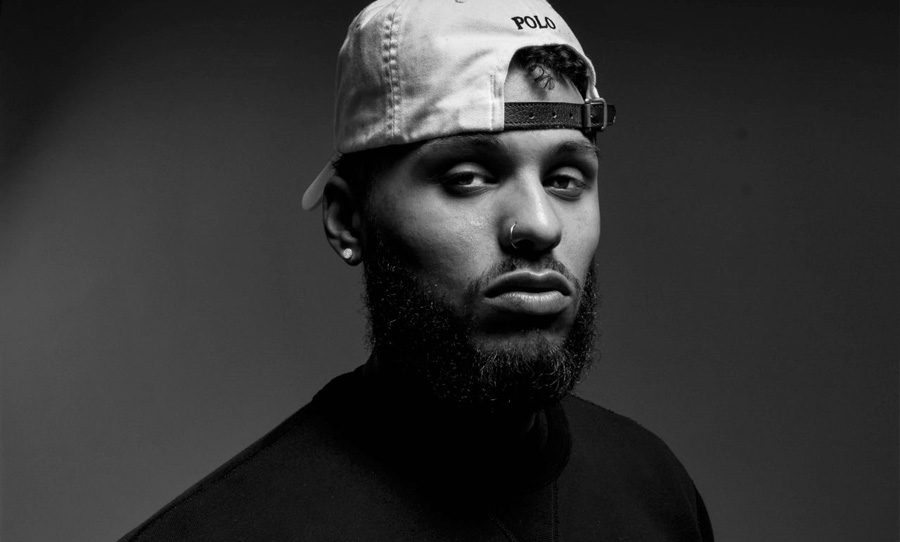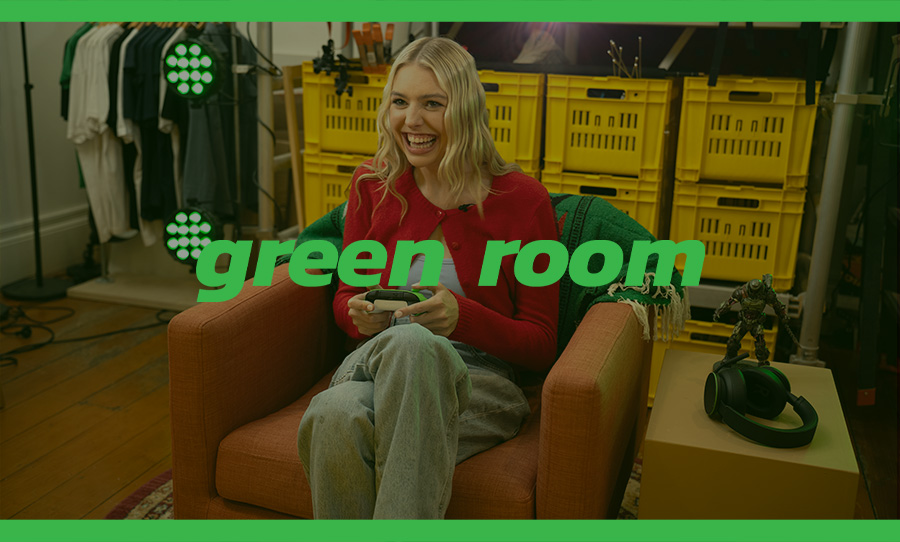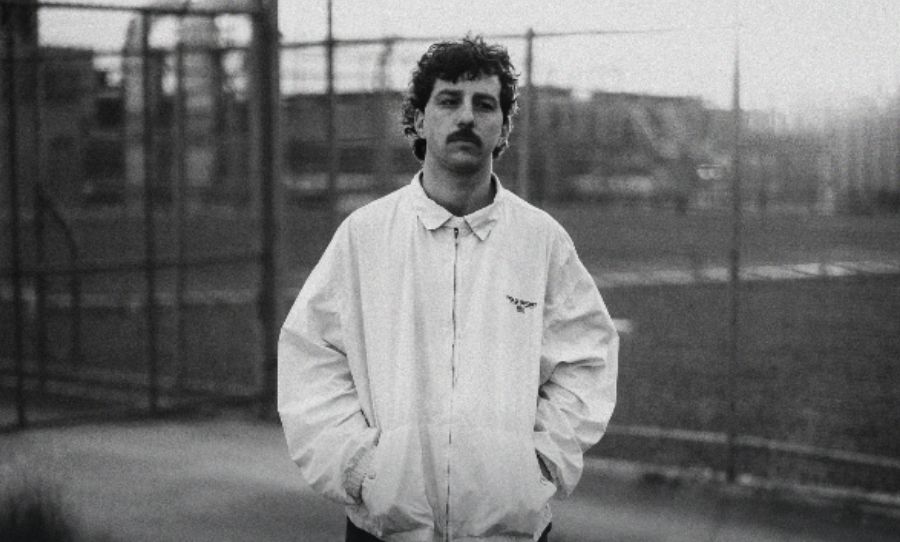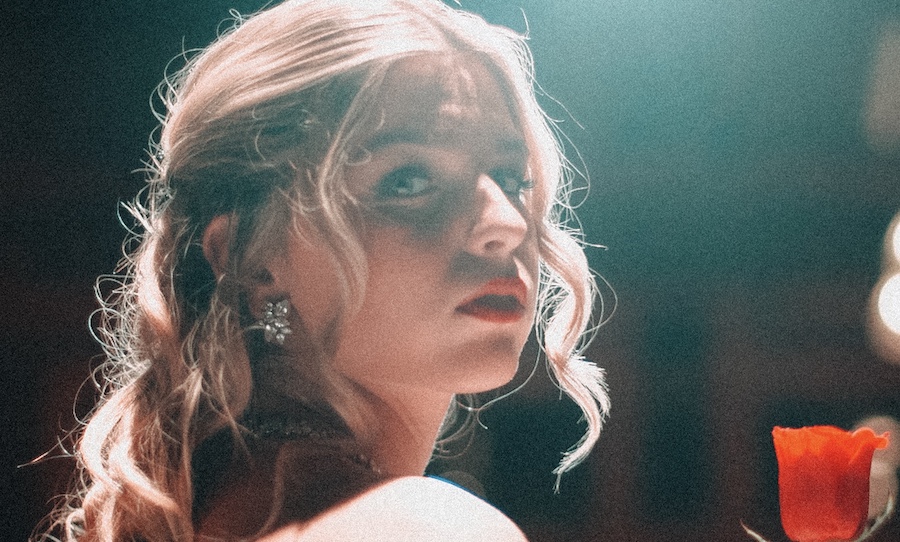Rising from a Chicago scene that harbours Chance The Rapper and Vic Mensa, Joey Purp may just be the next in line for a crown. A year removed from his debut record QUARTERTHING Purp is still touring the globe and earning fans, all the while dropping the odd single or feature.
While he was in Australia for the very first time at Red Bull Music Festival over the weekend, we caught up with Joey for a chat.

Joey Purp chats the history of Chicago hip hop, why your contemporaries should be your allies, and what his ultimate artistic goal would be.
HAPPY: Have you been to Melbourne before?
JOEY: Nah man, first time in Australia.
HAPPY: Did you know Melbourne is Australia’s ‘windy city’, like Chicago?
JOEY: Is it, is that the vibe here?
HAPPY: You haven’t noticed yet?
JOEY: It is relatively windy, yeah that’s real.
HAPPY: On Chicago, there’s this phenomenon I’ve noticed where if you have one or two really successful artists from an area, then a whole lot more start to pop up doing a similar thing. For instance in Perth we have a million psychedelic rock bands since Tame Impala got big. Has a similar thing happened in Chicago?
JOEY: You know what? Yeah. I think it’s been starting ever since Kanye. There was Kanye, then there was Lupe [Fiasco], then there was a bit of a dry period commercially, but a really successful period locally. I think that was due in part to, you know, Kanye created a whole new precedent culminating all these different types of styles from Chicago, like hip hop but traditional hip hop, like backpack vibes, then he also bought the fashion, fresh vibe. You know what I’m saying, that’s Chicago.
Then Lupe followed in those footsteps. Then after Lupe there was a disconnect because more people were like, more traditional Chicago people. Chicago rap is super tough, we come from a gangster city, there’s a lot of tough people in Chicago, so to speak. So I think there was a bit of break in between Lupe and the generation that came through with Vic [Mensa] and Chance [The Rapper] that I’ve been part of, and so now it’s post-Vic and Chance. There’s a budding scene that’s serving the same crowd that they served, which is also the kids of Kanye.
HAPPY: So it bubbled around underground for a bit.
JOEY: Exactly, exactly, and eventually it became a big enough scene that we could do it on our own.
HAPPY: Do you think that’s always a good thing, or can it oversaturate?
JOEY: I think it’s always a good thing, man, in my personal perspective. I always looked at it like… I never competed with my friends in a destructive way. When my friends were getting successful and gaining notoriety, I never looked at it and was like, you know, ‘I wish it was me’ or ‘how come it’s not happening to me?’ Because these are still my close friends, any success they see just makes that climb up easier for me, if we’re still friends and we’re still around each other. I was blessed at birth that my direct friends were gaining notoriety, I looked at it like it was a blessing for me too, you know? My friends changed my life, I wouldn’t be doing what I’m doing if it wasn’t for them.
HAPPY: Right, I think that attitude of ‘I’m doing the same thing as them, why aren’t I successful?’ can also be really toxic for people.
JOEY: For sure, I think you see that a lot. With different cities, different crowds, different groups and stuff, people are falling out because somebody’s not as popular as somebody else, or maybe people don’t work well together because they’re always – in their mind – competing. But in Chicago we’ve got such a community because everyone works together. I got songs with everybody, we look out for each other.
HAPPY: That’s the way to be. I think it’s great, when something like that happens you’re literally inspiring kids to make music.
JOEY: For sure, for sure.
HAPPY: When you’re coming out of a place with such a rich music history and a rich contemporary thing going on, is it ever a balancing act between doing your own thing versus doing what people might call a ‘Chicago’ thing?
JOEY: Somewhat – but not really. For me personally, it’s not really a balancing act because I don’t think Chicago has one sound, per se.
HAPPY: That’s why I wanted to ask, I guess. It seems to bounce around a lot more than more concrete scenes.
JOEY: I think Chicago has two distinct approaches to music right now; the digital, more synthesised 808-heavy production, and then there’s the analogue, instrument-based production that you’re seeing right now. And it’s not necessarily a ‘rap’ sound or a ‘rap’ style of music, it’s more like a general production style. And then it’s artist to artist, in terms of how you want to approach it.
HAPPY: Now QUARTERTHING turned one year old last month. Looking back, is there anything you’d change about the record?
JOEY: Yeah, I would put the first song second, and I’d put the second song first. I think that it would read better on the tracklist, just to have RZA on the first song and GZA on the last song.
HAPPY: Nice.
JOEY: That would be a change that I’d make, and then I would probably add a couple of features to a couple of things. Otherwise I really like it, there’s a couple of lines here and there that, as I listen back to it, I could have phrased a couple of things differently so they fit better. You know, just small changes. I might have changed the mix of it so it smacked harder, it sounds a lot like a mixtape right now… in retrospect I could have made it sound like an album. Not necessarily the songs, just how they’re delivered to the ear.
HAPPY: It’s good to have some self-feedback. If you look back a year and see nothing that you’d do differently it’s kind of like… have I learned anything at all?
JOEY: For sure, man. I’m big on that anyway, QUARTERTHING had been finished long before it was out but we just kept tweaking it, we kept changing it. The songs had been done for so long but we were adding stuff, taking stuff away, you know what I’m saying? I’m big on that kind of stuff, there’s always more.
HAPPY: That’s a trap too though, going too deep into your own mind. You’ve gotta put a stop on things sometimes.
JOEY: I talk to my friends about that a lot. It’s almost like painting, like what colour do I start with? What word do I say? What am I going to draw about? What am I going to paint right now? Am I going to paint something I see around me or am I go somewhere and paint there? It’s like there’s infinite possibilities, bro.
HAPPY: Do you think hip hop, in a broader sense, has changed since September last year?
JOEY: I don’t know, man. I feel like a lot has changed. I think the role that social media plays is increasing drastically, I think that how artists are utilising people and vice versa… like people are creating platforms based around music that aren’t necessarily tied to any individual artist or label. There’s so many different platforms to put music out, there’s so many different ways people are consuming music, so many places people are dancing to it, so I think that’s the main thing. It’s accelerating, there’s so many ways you can digest or ingest the music.
HAPPY: Juliette [from Caroline Australia], who you’re with now, had Denzel Curry in Australia recently and his focus was all about doing things with people; in-stores, surprise appearances, stuff like that which revolved around actually meeting as many fans as possible. I think that was a bit of a rejection of the huge online presence that so many people have to have now.
JOEY: For sure, and I think that’s critical too because we’re seeing the two worlds collide, almost. I remember a period of time when I was younger where people were super popping online, then you didn’t know where their fans were in the city. And in major cities it was like that! You’d have people with tons of followers online, their videos get tons of views, but if you ask your friends nobody listens to them. Now I think it’s different, there’s an artists who may not be in the mainstream conversation but if they Tweet a location and a time, 500 kids are going to show up. The two are definitely becoming increasingly tied together.
HAPPY: What else are you working on?
JOEY: I’m working on two new projects right now, they’re both going to come out relatively soon.
HAPPY: How about down the line, beyond that? What would be the ultimate goal for you?
JOEY: Man, I was just talking to someone about that. Ideally I would be able to use music as a platform to create in other ways, then once I’ve established myself as a reputable or respectable across different mediums, then I’ll probably try to create businesses that are anchored in my passions and things that I want to continue to do. Things involving music, art direction, video direction, clothing design, real estate, art in public spaces… these are all things that I grew up into so I want to try and stretch my hands into all of these different directions.
HAPPY: Do you make art outside your music?
JOEY: So far it’s only been music videos from myself and others, like every music video I’ve ever done I’ve had a hand in the direction in it, then a lot of my friends’ music videos I’ve had a hand in. Also design, so far it’s been mostly visual; my merch, other people’s merch, I do a lot of design of logos, fonts, that kind of thing. I want to get more into that. Overall creative direction, overall production.


